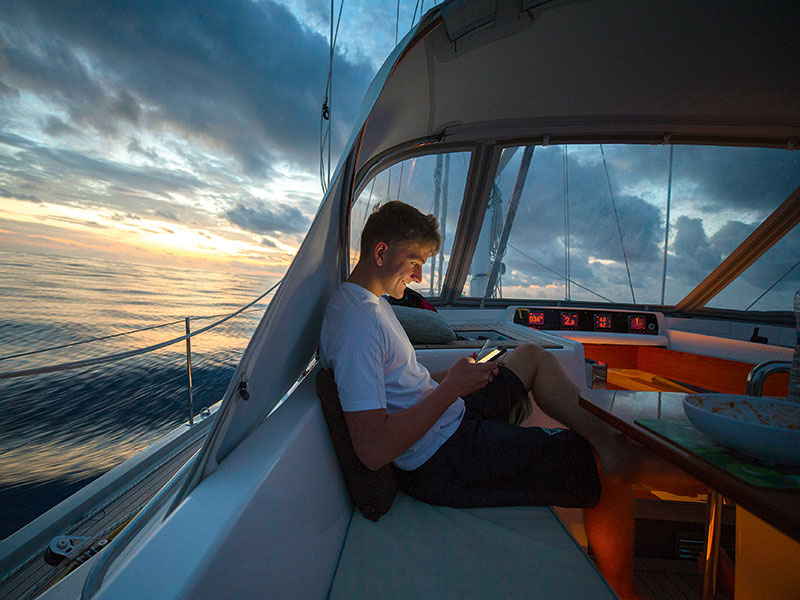People have been spending a lot more time on their boats recently. Many are working remotely on board, and others are looking for the convenience of home WiFi on their boats. Access to the internet is not only important for work and entertainment, but it is also an easy way to upgrade your navigation software or to get real-time weather data.
At the same time, boaters have discovered that connecting to marina WiFi from a laptop or mobile device is invariably hit-and-miss. Signals often struggle to get through the forest of masts and many marina WiFi systems suffer from low bandwidth at popular times. Reception can be even more of an issue away from the marina at your favorite anchorage.
There are two sorts of solutions to connection problems. WiFi extenders work by boosting the strength of a WiFi signal. By increasing the connection range of existing WiFi networks you get a stronger signal on board. The important point to note is that these devices are extenders, and are not access points on their own. What they do is make a weak connection stronger, by increasing that initial connection range. If you are in an area where there is no WiFi signal available, or where all of the available networks in range are password protected, that’s a problem.
Cellular boosters, on the other hand, work by amplifying existing cellular (phone) signals so that in areas of weak cellular coverage, you can still get a signal. Use of these boosters requires that you have an account with a cellular provider like AT&T or Verizon and use data. Almost any device that uses a cell signal can be enhanced with a cell booster. An exterior antenna gathers signals from cell towers, and this signal is transmitted to the cellular amplifier. The signal booster amplifies the signal many times and transmits it to an interior antenna, which then converts this signal to Wi-Fi to allow any Wi-Fi enabled devices to connect to the internet. Installing a cell booster will also provide your cell phone with better signal strength providing a clearer call, less dropped calls, and extended battery life.
Regardless of which type of system you choose, the most important factor in getting the signal that you are hoping for is to consider where you mount the antenna/extender. You will need to put it up high enough to catch the closest signal to extend it to your boat, so do not put this down low and hope for results. The antenna should also be designed for the marine environment and be weatherproof to withstand ocean conditions and humidity.
